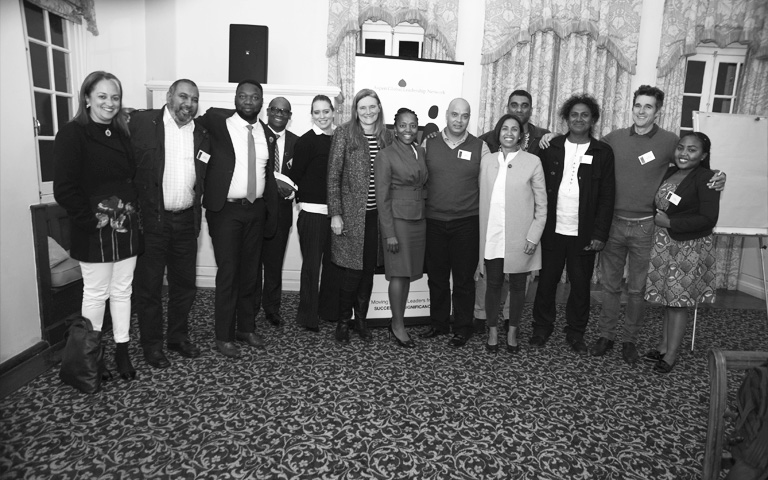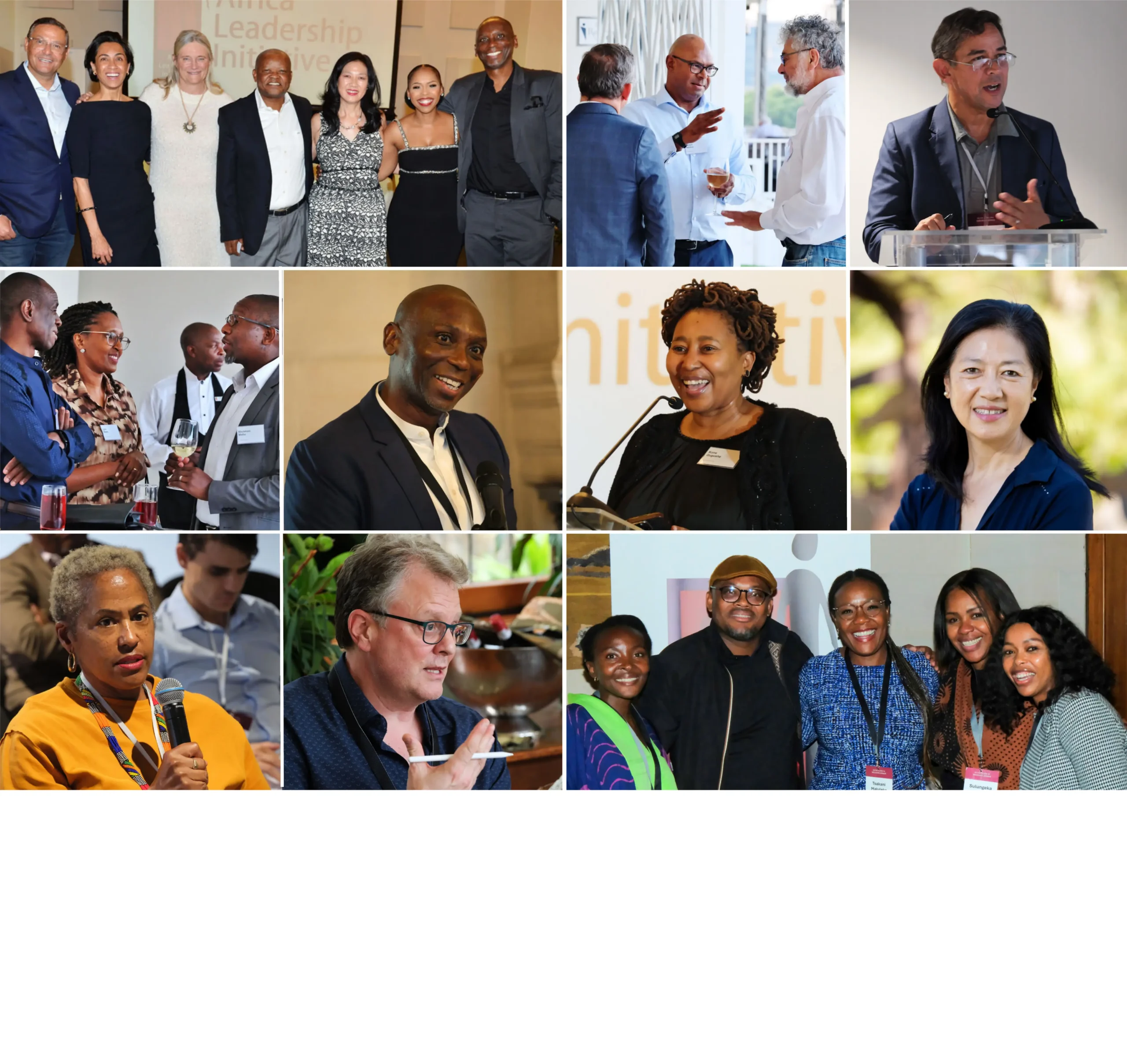
In light of the recent cabinet reshuffle by President Jacob Zuma, the debate around energy has taken centre-stage in the South African socio-economic politics. From Eskom’s ambitions of building a 59 billion-rand nuclear plant by 2025, to the Department of Energy’s eagerness to get Russia to construct a trillion-rand nuclear facility. The discussion around energy is an important debate that should not be ignored. Not even by non-partisan non-political party organisations such as the Africa Leadership Initiative (ALI).
Introduction
On the 10th of October 2017, ALI, in collaboration with the Campaign for a Just Energy Future [CJEF], hosted the first workshop on the nuclear build. The workshop was themed ‘South Africa’s Nuclear Deal, what is to be Done?’
Amongst the panels were the former Greenpeace director and founding ambassador of CJEF, Kumi Naidoo, accompanied by activist and member of the CJEF, Pooven Moodley.
The workshop, moderated by Ann Lamont, took an exciting turn and saw Fellows share different perspectives on how to address the nuclear deal.
The moderator kicked off by making it clear that the Africa Leadership Initiative does not take sides on political or economic matters. However, due to the nature of the issue and the involvement of fellows, ALI found it imperative to help facilitate a platform through which to engage in honest and robust debates around issues that matter to the society.
The First Workshop
As the workshop opened, the context was crystal clear; the world is shifting towards renewable energy; China and India are already exploring solar/wind energy, Germany has its ambitions of shutting nuclear by 2020, and Russia, with its declining nuclear market, has to also look to new technology. However, as the world transitions, South Africa stands at a crossroad weighing the options.
Coal is a big part of South Africa’s energy mix, but it destroys the environment. Nuclear energy, on the hand, although it has positive power attributes and applications more broadly, is expensive to build and cheap to maintain, it is also costly when distributing its output inland. On the positive side, renewable energy could deliver affordable, safe, clean electricity for all South Africans, but it relies heavily on the climate to generate energy, and moreover, few elites advocating for the alternative could stand in the way of a renewable energy future. All the options are there, but it’s up to us to choose the road that has a better future for generations to come.
Nuclear
As the discussion began, Kumi Naidoo presented an argument against nuclear as well as the way in which it seems to be politically driven. The sentiment was that the construction and operation of nuclear reactors are exceptionally challenging because of political, economic, geographical, environmental and safety reasons. He elaborated on the hefty costs of dispersing nuclear waste — a price which has not been factored in the nuclear deal, as well as the extensive time it would take for the Russians to build such a reactor. In a nutshell, he unfolded why the case for nuclear does not make sense and why the numbers do not add up. He cited that both Europe and the Americans have nuclear plants that are partially-finished or abandoned; they have squandered billions in developing these facilities but have nothing to show for it.
Pooven seconded Kumi and pointed out one key concern regarding the nuclear proposal: The process, or the lack thereof. He started by reminding us that before the end of this year, the Minister of Energy is to place the discussion on the table for the cabinet. However, at the time of writing this article, the former minister he mentioned has been replaced by a new Energy Minister in a recent administration reshuffle by the President.
As far as it’s known, the South African parliament is yet to discuss the pros and cons of nuclear. Unfortunately, the process and the initial lack of consultation from the Department of Energy has fuelled speculations that the proposed deal is part of some state capture.
On the Other Hand
After the speakers had their way, Fellows were pressed with interesting possibilities to ponder. Could Russia be trying to hit two birds with one stone by dumping old technology into Africa, while getting to fund South Africa with a trillion rand in exchange for, perhaps subliminal control in our country’s affairs, or supportive votes on the UN council? Could this be a modern-day recolonisation, or, on the contrary, economic emancipation for South Africa?
The debate was not short of push backs. It invited interrogative questions from the Fellows. Not all were moved by the case against nuclear. Some pointed out that it would be unwise to view nuclear as a problem as opposed to seeing it as part of South Africa’s energy mix. Another Fellow voiced that the challenge may not be ‘nuclear’ itself but the extent to which we are opting for it. Other Fellows also felt that the nuclear decision may not be as irrational as we make it out to be, but the intent of the deal is questionable. Be it so; Fellows recognised the importance of the debate as they shared different views and interrogated the pros and cons of nuclear.
One Voice Emerging
When all was said, there was one common truth everyone agreed upon; that everyone in South Africa needs to be educated regarding issues such as the nuclear deal. It is evident that the ordinary man on the street is unable to relate to the high-end technical conversations taking place in the country.
The Fellows discussed how they could best bring individual people into this national conversation by demystifying the topic and bringing it down to earth so that a layperson can understand it. It was also agreed that such a campaign of awareness could be achieved through four avenues:
- Legal: To make sure we as an organisation always get the story right from a legal perspective.
- Mobilisation: To use marketing materials and social media to spark conversations around such topics.
- Coalition: To work with businesses and invite them to the fore.
- Media: To popularise issues through the journalistic narrative.
- Politics: To continue engaging with political parties regarding essential matters.
Messaging
All Fellows saw the need for a marketing strategy to reach all stakeholders. Investigative Journalism was also hinted as one way of peeling off the complex layers and getting down to the truth of the matter.
Here are some of the points the Fellows suggested as part of developing a messaging construct around the nuclear deal:
- First, we need to simplify and demystify the nuclear deal, as well as renewable energy.
- We need to simplify it to its granular level, so that the common citizen with ordinary challenges, can understand how this deal will affect his or her life on a daily basis.
- We can’t just chant against ‘nuclear’; we also need to look into what we deem a reasonable amount of our energy mix.
- We need to create a narrative, also through the use of satire, to help people understand the discussion and what it means to them.
- We need to put down the facts as to not seem like we’re pushing specific interests. Scientific evidence is also necessary.
- The conversation must be tailored in the broader energy space.
- We should not lose sight of the long haul.
Conclusion
In the end, the workshop was educational and exciting as it was intended. As the Africa Leadership Initiative, one of our aims is to create a conducive environment for values-based pan-African leaders to rise and discuss issues pertaining to their communities and their country at large.
We continue to encourage all Fellows to join the conversation and make their voices heard as we all work towards creating a good society, which is a good inheritance for the future generation.
Workshops such as these are one of the ways we can spark conversations that can bring about change where it matters.
Look out for the launch of the Good Society Dialogue Series which will run for 12 months. We will send out correspondence soon.









